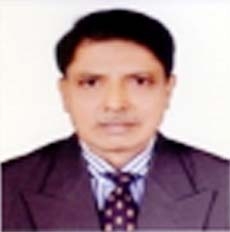
Dr. Forqan Uddin Ahmed :
Incidents of electoral violence, including deaths, have become widespread as the ruling Awami League is struggling with rebel candidates in the ongoing staggered union parishad elections that have already seen many deaths, mainly in clashes between the AL’s official and rebel candidates. Most political parties, including the main opposition Bangladesh Nationalist Party, are not contesting the polls protesting at what they call the failure of the Election Commission to hold any elections fairly. According to New Age correspondents in different districts, nearly 900 rebel candidates will fight their AL-nominated counterparts for UP chairs while there are a huge number of rebel candidates against party nominees for member positions in the next phase of the UP electoral poll.
The Government of Bangladesh has taken various steps to strengthen local government institutions to assist achieving SDGs through localisation. Although the party-based election is a method of strengthening local institutions, the practice of this method has failed to bring a pleasant experience to Bangladesh. Therefore, it is time for the government to think about this issue. We all need to keep in mind that the ruling party has suffered the most due to party-based local government elections. Because of this election, the Awami League has been divided into different factions across the country, which is one of the reasons for the party’s organisational weakness at local level.
With this in mind, the Awami League should think seriously about the election method and organise the party by ending the conflicts and factionalism at the local level. If local politics is not well organised, then Awami League may face problems in the next elections. With this in mind, it is necessary to abolish the system of part-based local government elections as soon as possible. If this is done, the intensity of such electoral violence will be reduced, and the Awami League will be strengthened organizationally, which will help the party retain power wining the next election.
The aftermath of violence is frightening in Bangladesh. It is a major hindrance to ensure good democratic local governance (GDLG). GDLG is a type, where without hesitation people can take part in elections and cast votes, as well as candidates, can do election without impediments. It is required for poverty reduction and long-term sustainable local development. It focuses on improving fundamental individual freedoms and human rights within the local community and, responsible for providing services to local citizens impartially. Sustainable local development is literally impossible without GDLG.
So far, Chief Election Commissioner, KM Nurul Huda has said that the commission is “embarrassed” over UP poll-related violence, and it will work to prevent any further incidents. Will such statements build the people’s confidence in the Election Commission’s ability to hold free, fair, and peaceful elections? A report in this daily detailed how the commission had issued a show-cause notice to one ruling party candidate in Dhamrai’s Sombhag union for threatening independent candidates during a campaign rally. While this is a step in the right direction, there are many more such candidates that the election authorities have failed to deal with.
The Election Commission’s fundamental role is to ensure smooth functioning of the democratic process. However, the recent trend of uncontested elections and the growing apathy of voters towards local elections demonstrate a worryingly significant weakening of this process. In the first round of the UP elections, 45 union parishad candidates won uncontested, which means 29 percent were elected without a single vote being cast. Although the election commissioners have spoken about how they cannot comment on the parties’ internal politics and the decision of opposition parties to boycott the elections, experts have said that the Election Commission must be held accountable for failing to create conducive environment for an all-inclusive election.
Electoral violence is a threat to democratic institutions and good governance. While the Election Commission and law enforcement agencies assure the public of peaceful conditions during the elections, it has proven difficult for them to achieve their professed objective. A significant test in this regard would be for the authorities to learn from the severity of the recent UP election, and not just intend to take appropriate measures to ensure free and fair polls but also ensure that the outcome is achieved. Finally we can say, to avoid violence, clash and chaos election commission and government’s role must be very significant. On the other hand, it is very necessary to be cordial and firm to conduct free and fair election from government side. Otherwise democracy and good governance will be questioned which will intercept and hinder our national SDG’s goal. So to keep up the trend of development process, fair and neutral electoral poll must be ensured.
(The writer is former Deputy Director General, Bangladesh Ansar & VDP).

